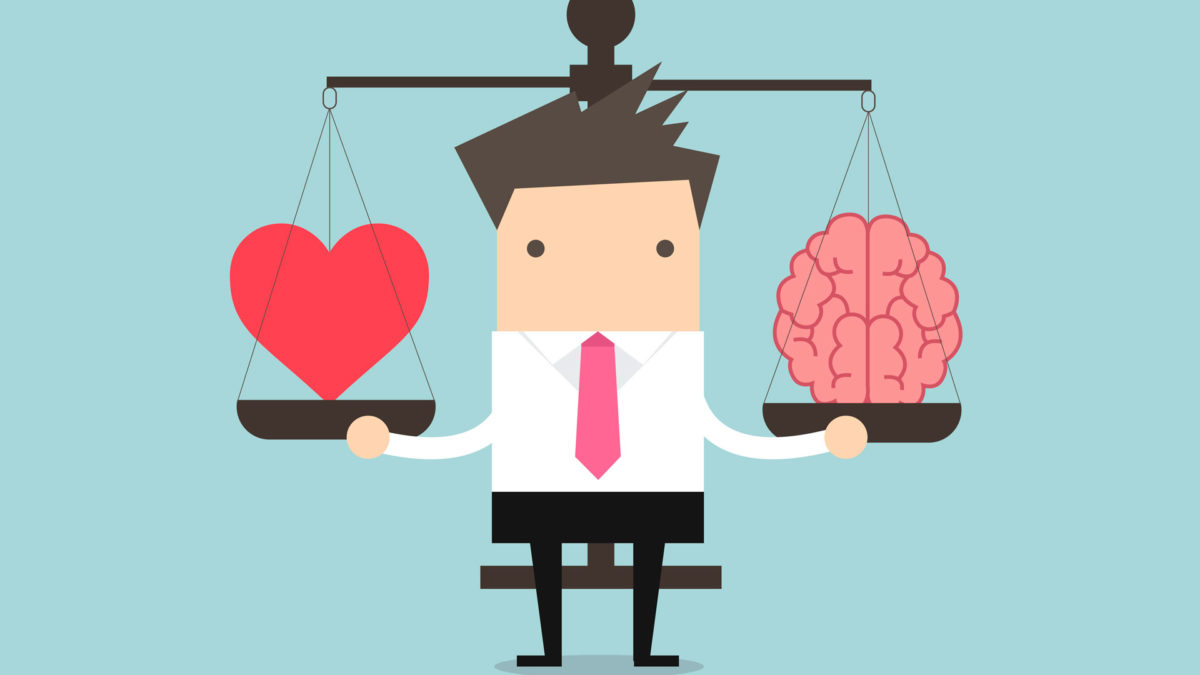There was a time when the term ‘emotional intelligence’ sounded like a paradox. You could either be emotional or intelligent, how could you be both?
Often, when asked what it means to be intelligent, the term IQ was thrown around a lot. And while IQ is an assessment of human intelligence that has been around for decades, EQ, or emotional quotient, is a relatively new addition to our understanding of intelligence. In other words, it is only recently that scientists have begun to recognise the importance of EQ and studying its implications on human behaviour.
Whether we like it or not, most of us are slaves to our emotions. Overwhelming feelings of frustration, anger, hurt, or sadness can often cause us to make impulsive decisions that we will later regret. Similarly, even positive emotions like excitement, giddiness, and exhilaration bliss can decrease our capacity to be rational human beings.
Every thought we have, every sensation we experience, originates at the base of the brain. It then travels through the limbic system before any neural function is carried out. Since the limbic system is responsible for dealing with emotions, every cognitive process is first emotional. Emotions are therefore the primary drivers of our behaviour, and how we deal with them affects everything else.
The awareness that our emotions may sometimes hinder our ability to think straight is itself a sign of emotional intelligence. So many times, we know our emotions are clouding are judgment, and yet we feel like there is nothing we can do about it. We are mistaken.
While IQ and personality traits are more or less unchangeable, emotional intelligence can be cultivated over time. There is a neurological explanation for this. Because EQ is controlled by an area of the brain that is highly plastic, an increase in EQ causes neurons to physically branch out to each other, thereby increasing the flow of information between the rational and emotional brains. In other words, your decisions will no longer be simply emotional, but also logical.
So, what does it really mean to be emotionally intelligent? According to psychologist Daniel Goleman, EQ involves a number of different components.
The number one factor in EQ is self-awareness. Knowing what we’re feeling and why we’re feeling it is a major determinant in good decision making. It means being your own moral compass.
Another important factor is self-management. Emotionally intelligent people do not let their emotions cripple them. Instead, they are able to handle their most distressing emotions effectively, understanding that each emotion has a function, and something valuable to learn from.
Empathy is the ability to recognize and manage the feelings of others, often without needing them to state their emotions out loud. A person of high EQ is likely to be empathetic, and can usually deal with the feelings of the people around them without being affected personally.
Being able to put all of this together and thereby maintain successful and skilled interpersonal relationships is a clear marker of high emotional intelligence.
When it comes to work, emotional intelligence explains about 60% of how you perform. Research shows that 90% of top performers are high in EQ, and nearly 71% of hiring managers say they value an employee’s EQ more than IQ.
Those with a higher EQ not only have a greater ability to self-regulate, they also have higher levels of motivation, a reduced tendency to procrastinate, and increased self-confidence. This enables them to work towards long-term goals effectively. Since they do not get bogged down by difficult situations, emotionally intelligent people are also better at resolving conflicts, responding to criticism, and keeping their cool under pressure.
While having a high EQ is almost a requisite to get to the top, it is not just leaders and managers who benefit from this skill. Emotional intelligence within a group facilitates valuable communication, greater cooperation and collaboration, and hence enhanced performance overall.
Any successful relationship requires healthy communication. While most of us would rather avoid disagreement and confrontation, emotionally intelligent people know that it is better to deal with conflicts head on rather than slide them under the carpet.
Emotional intelligence involves the critical ability to respond to a situation rather than react to it. They know that acting out emotionally in a difficult situation will only add fuel to the fire, and so they make it a point to articulate their feelings in a calm and rational way, keeping in mind the effect that their actions have on others. Emotional intelligence and emotional maturity are key to fostering any healthy, lasting relationship.
EQ not only affects your relations with others, but also your relationship with yourself. The way we think about our emotions can have a large impact on the way we view ourselves. Our mental health is dependent on our ability to effectively identify and manage our emotions.
Strengthening your emotional intelligence can therefore help not only your job or your relationship, but it can truly change your life.
Although we are taught to believe otherwise, we are indeed in control of our emotions. Deciding to remain aware, be empathetic, and take constructive action in the face of adversity are choices we make every single day. You can continue to work at the mercy of your emotions, or you can take back the reins. The decision is yours.
Authorship: Unnati Patel

